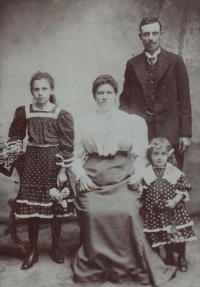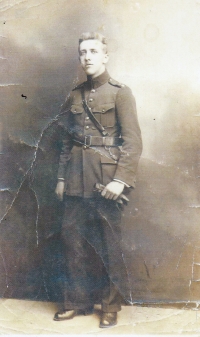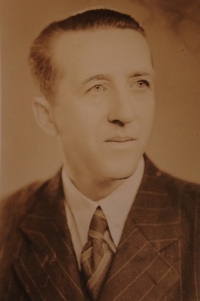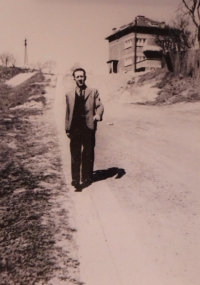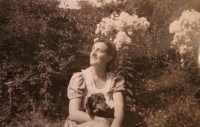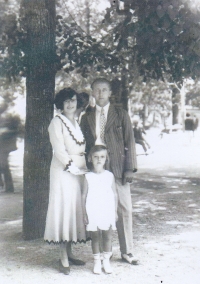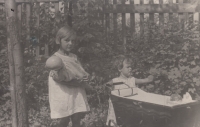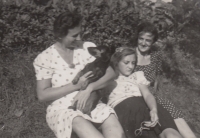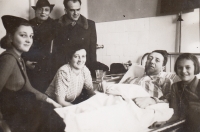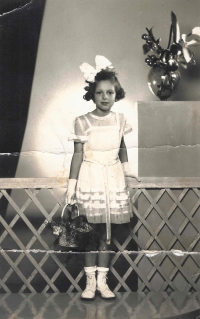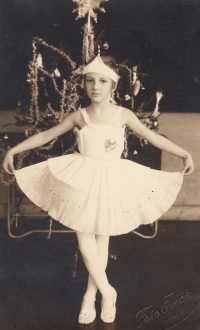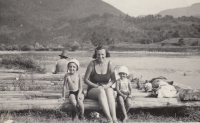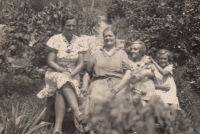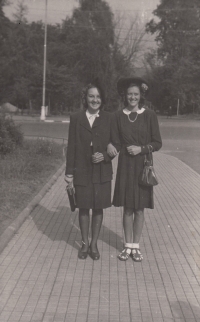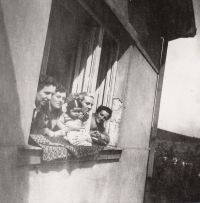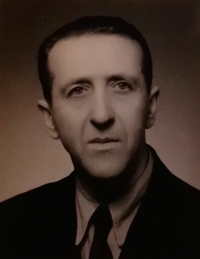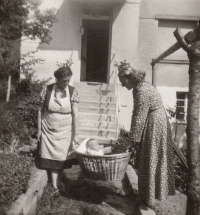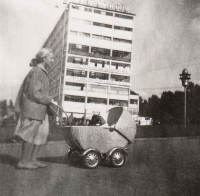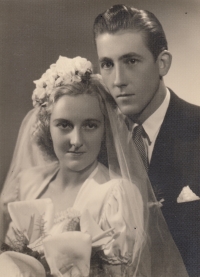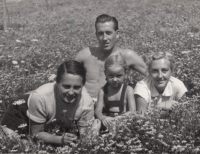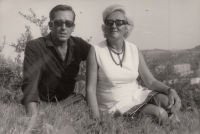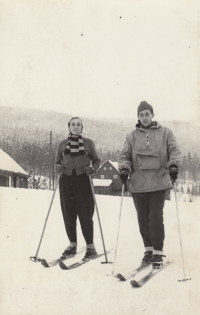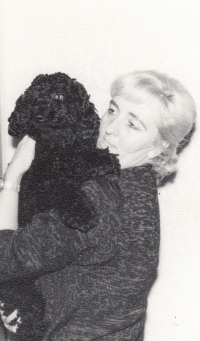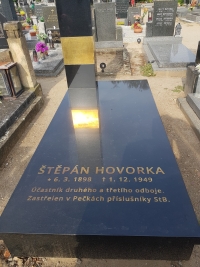Dad never spoke about anyone because he said if we didn’t know anything, we couldn’t tell

Download image
Maria Čachová, née Hovorková, was born on 30 January 1926 in Mukachevo in Carpathian Ukraine, where her father Štěpán Hovorka was then working as an armourer in the rank of company sergeant major in the Czechoslovak Army. In 1923, he married her mother, Evženie (Eugenia) Ederová, who came from a mixed Czech-Austrian family and was born in Vienna. Maria grew up mostly in Zlín together with her younger sister Ludmila. She completed her primary school at the Masaryk experimental school and upper primary school (town school) in a special foreign language class, where she improved her German. After finishing the schools she worked (as part of forced labour) in the Baťa factory in Zlín and witnessed bombing and liberation of Zlín, in which her father participated as a member of the resistance. After the war, she studied economics at evening school and started working as a clerk at the employment office, where she met her future husband, lawyer Jan Čacha. They married in April 1948 and soon their only daughter Ylona was born. In the autumn of 1948, Maria’s father joined the anti-communist resistance. He became a member of Štěpán Gavenda’s group and got the code name Baste. Directly in Zlín he operated two dead boxes. He narrowly escaped arrest on 1 August 1949, when State Security (StB) arrested the agent walker Gavenda, and from then on he was in hiding. On 1 December 1949 he fell into a secret police trap and was shot dead in his native Pečky. The family of the witness was not informed by the police of her father’s death and did not receive a death certificate until more than six months after his death. The families of Maria Čachová and her sister suffered persecution by the totalitarian regime. They lost their jobs, their husbands were fired, and their children could not avoid troubles either. In 2014, Štěpán Hovorka’s contribution to the anti-communist resistance was recognized. At the time of the recording (2023), Maria Čachová was still living in the family villa in Zlín.
